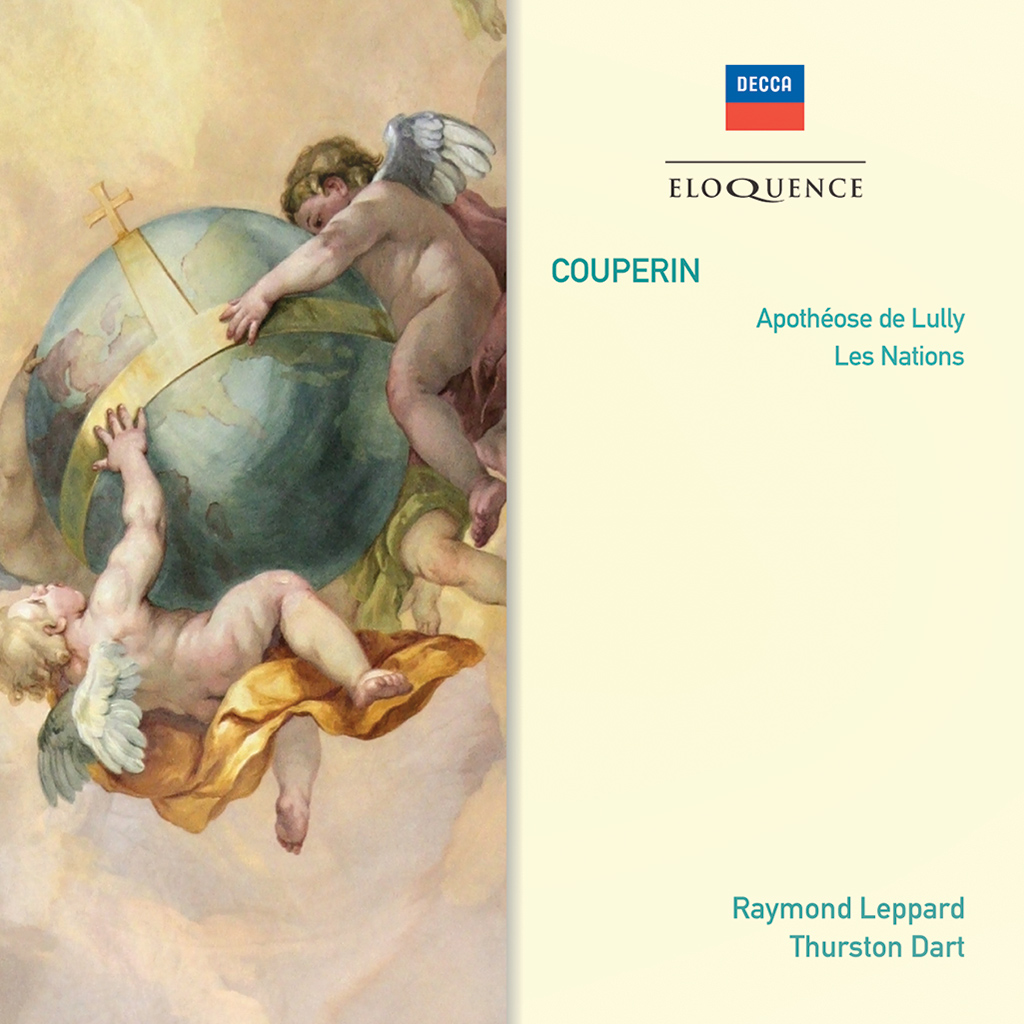
One of Couperin’s most important, varied and profound compositions, ‘Apothéose de Lully’ is cast in a programmatic form. Each movement tells a section of the story of the acceptance of Lully into Parnassus, his meeting there with Corelli (the founding fathers of the rival French and Italian styles) and Apollo’s persuading of them to bring about a reconciliation of the two styles for the sake of ‘la perfection de la Musique’. Originally indicated to be performed on two harpsichords or even as a piece for chamber orchestra, Raymond Leppard has carefully devised the piece in such a way as he thinks it might have been played in a formal concert performance, drawing clues on instrumentation from contemporary operatic scores.
The companion piece on this CD, the first two ‘ordres’ of ‘Les Nations’ is performed by one of the early pioneering Baroque ensembles, The Jacobean Ensemble (with Neville Marriner playing first violin) under Thurston Dart.
First release on CD.
FRANCOIS COUPERIN
Apothéose de Lully
English Chamber Orchestra
Raymond Leppard
Les Nations
Jacobean Ensemble
Thurston Dart
Recordings: Decca Studios, West Hampstead, London, UK, 1962 (Les Nations); Kingsway Hall, London, UK, 1966 (Apothéose de Lully)
‘distinguished by the finesse of playing and a sense of style that is all too rare in modern recordings of 17th-century masterpieces. The elegance, grace, and charm of these suites for the standard trio-sonata group reach the listener with an air of easy authority, thanks to the expert handling of ornaments by these four players. The violins of Neville Marriner and Carl Pini blend as smoothly as one could wish and Desmond Dupre’s gamba is skilfully balanced into the ensemble, whose mainstay and prop is the harpsichord realisation in the capable hands of Thurston Dart. The individual character of these pieces emerges vividly and naturally, and will surely give pleasure to all connoisseurs of French music’ Gramophone
